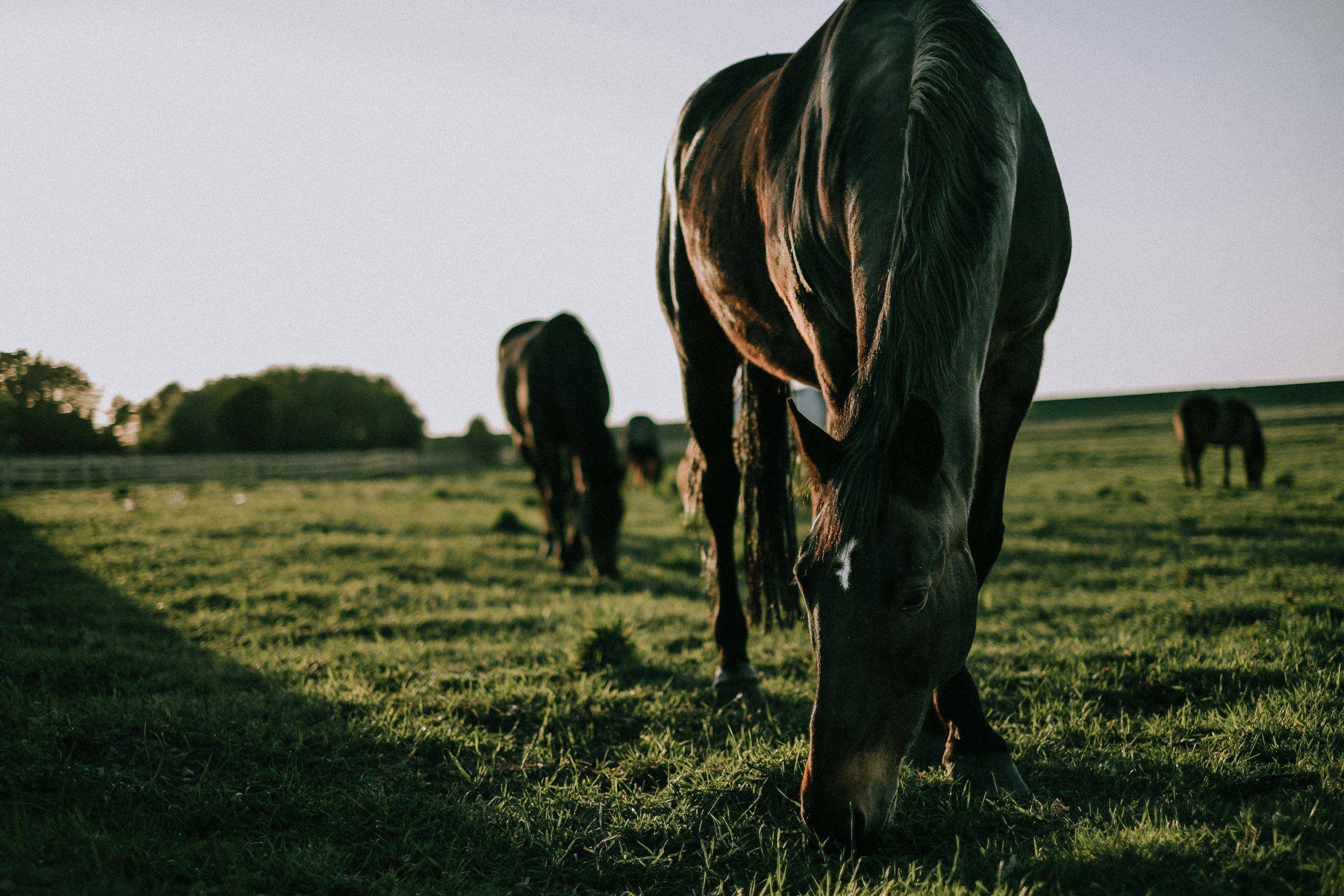
West Nile Virus
West Nile Virus (WNV) is a virus transmitted by mosquitoes. Birds are the main reservoir for the virus, but humans and horses can contract the disease if bitten by an infected mosquito. Horses and humans do not produce high levels of the virus, so the virus is not transmissible from casual horse to horse contact or horse to human contact.
The majority of infected horses show little to no clinical signs of the disease. The most common signs are fever, depression, and poor appetite. Only a small percentage of infected horses will develop neurological symptoms characteristic of the disease. Neurological signs of the disease include ataxia (uncoordinated movement when walking), head pressing, paralysis, and behavioral changes such as depression or hyperexcitability to stimuli. The tongue and facial muscles can be affected, so they may have difficulty eating or easy choke on food. Fatality is 30-40% in horses with clinical signs and much higher in horses with severe symptoms such as recumbency.
There is no specific treatment for West Nile Virus, so treatment usually involves supportive care and anti-inflammatories to decrease swelling and inflammation in the brain and spinal cord. If your horse begins to show any neurological signs, be sure to call your veterinarian to have your horse examined. Most horses that survive recover completely in a few weeks to months. Blood samples can be drawn and tested for antibodies to WNV to confirm infection.
The most important way to prevent West Nile Virus is to vaccinate your horse. We recommend that adult horses should be vaccinated every 6 months. Pregnant mares be vaccinated one month before their due date, thereby transferring protection to their foals. Foals should be vaccinated at 5 months and boostered at 6 months. Foals from dams that did not get pre-foaling vaccines may receive their initial vaccine as early as 3 months of age with boosters 1 month later. If you acquire a horse that has not had any prior vaccines, or are uncertain of the vaccination history, the initial vaccines should be boostered one month later.
It is also important to limit exposure to mosquitoes and remove any stagnant water sources that act as mosquito breeding areas. West Nile Virus can be a devastating disease that is preventable, so be sure to booster your horse if he has not been vaccinated recently!
At Conley and Koontz Equine Hospital we include the WNV vaccine in our annual vaccine package as well as our semi-annual booster recomendations. All horses in our region should receive this important vaccine twice per year for optimum protection.